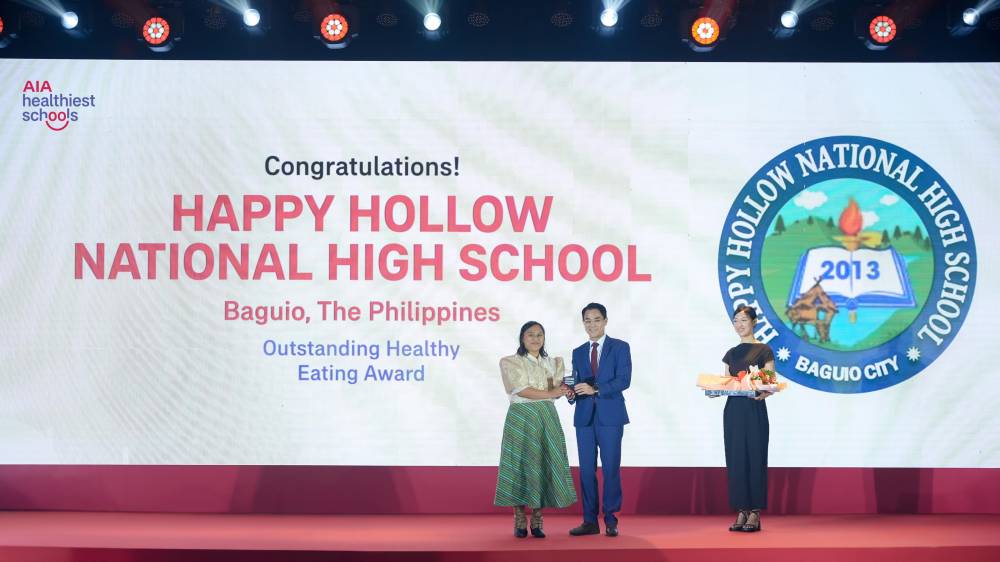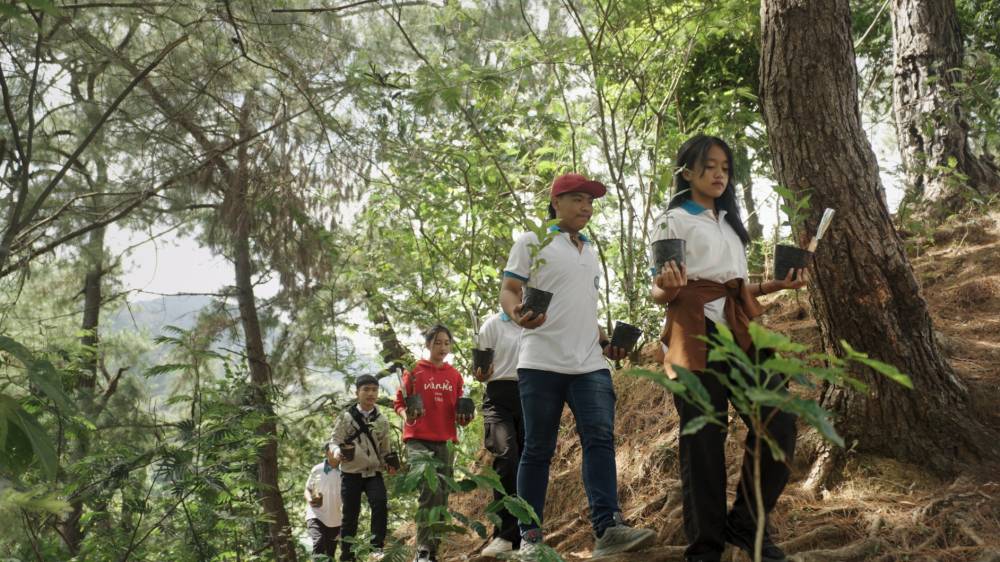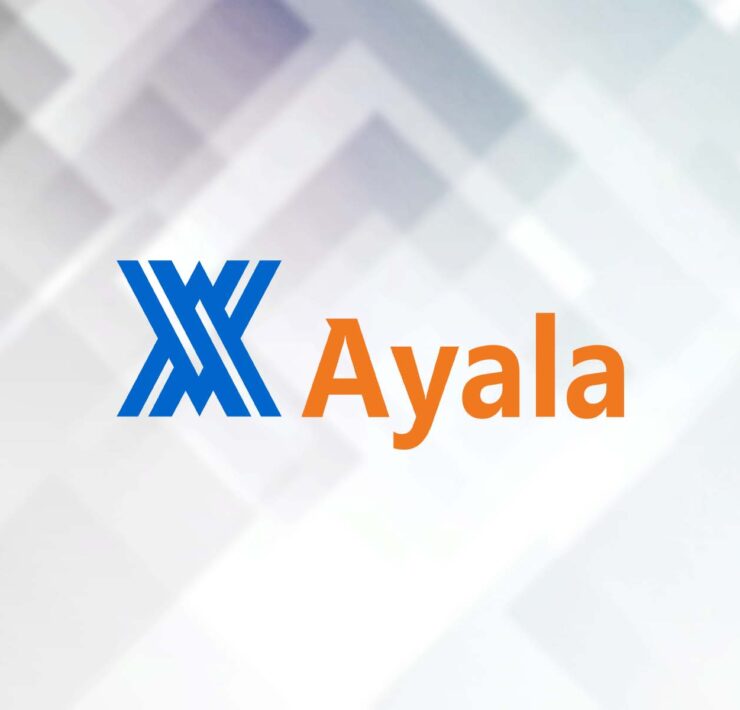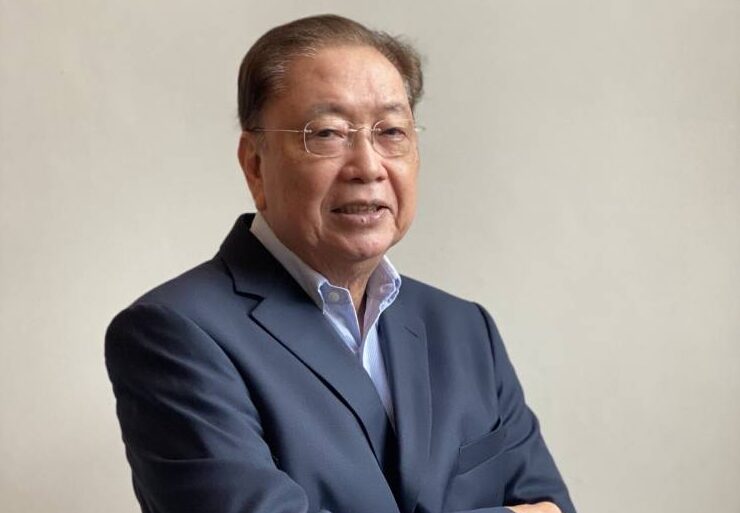Baguio school bags $15-k AIA ‘Healthy Eating’ award for organic farming program

Happy Hollow National High School of Baguio City, a public school that has initiated a program to teach organic farming, proper dietary habits and waste management, bagged the AIA “Outstanding Healthy Eating Award” 2025.
Now in its third year, the AIA Healthiest Schools Competition is deemed as Asia-Pacific’s most prestigious initiative for recognizing schools that are transforming health outcomes for students.
“The AIA Healthiest Schools Competition is about recognizing outstanding projects and sparking movements that create a positive impact reaching far beyond the classroom. This program is a powerful manifestation of our purpose of helping people live healthier, longer, better lives,” says Stuart Spencer, AIA Group chief marketing officer and head judge of the competition.
At a ceremony held in Da Nang, Vietnam on July 3, UPTD SD Negeri Papela of Indonesia was chosen as the overall pan-Asia Pacific winner, receiving $40,000 value prize that must be spent on a health initiative run by the school.
In addition, four category awards were presented. The “Outstanding Healthy Eating Award” went to Happy Hollow National High School in the Philippines.
The “AIA Outstanding Active Lifestyles Award” went to Jaffna Hindu College of Sri Lanka. SMP Negeri 43 Bandung of Indonesia got the “AIA Outstanding Mental Wellbeing Award” while Tessaban 1 Kittikachorn of Thailand won the “AIA Outstanding Health and Sustainability Award”.
Each category winner received a $15,000 cash prize.
“Congratulations to our overall regional winner, UPTD SD Negeri Papela from Indonesia, and to all our exceptional category winners, including Happy Hollow National High School from the Philippines. The success and growth of this program is a tribute to the extraordinary commitment of schools, teachers, parents and ministries of education across the region. Together, we are shaping a healthier future for the next generation,” says Spencer.

Inspired by the elders
Happy Hollow’s ‘Project O.R.G.A.N.I.C. (Offering Resources of Growing Agri-product and Nutrition in Community) advocates healthy eating, sustainability and food security.
It was launched last year in partnership with AIA, says Happy Hollow principal Janet Pascua.
Recognized as a farm school by the Department of Education in 2024, Happy Hollow—located in Barangay Happy Hollow, an agricultural community populated by indigenous people—aims to reconnect students with organic farming traditions while addressing poor dietary habits and waste management.
“Project O.R.G.A.N.I.C. has these objectives. We have this to teach students how to live happier and healthier—the importance of eating food that is nutritious and how to sustain this organic agricultural production that our indigenous people have that is being forgotten,” says Aries Busacay, a teacher at Happy Hollow in a video posted by the school on YouTube and shared on its Facebook page.
“The elders in the community, they are actually the [ones] who inspired the students to continue organic agricultural farming,” says Busacay, who received the award on behalf of Happy Hallow.
Lexa, a Happy Hollow student, says the project has helped improve her mental health by making her “socialize” with peers.
Another student, Lavigne, notes, “The soil in my hands, I feel relaxed and stress-free.”
The project teaches Grade 12 students to cultivate mustard greens (mustasa) using organic methods and recycled materials. They receive training in organic agriculture production and afterwards mentor younger students.
Once the students learn organic farming, they can apply this in their own backyard for food security, Busacay adds.
Community collaboration is seen key to the success of the initiative. Barangay officials and nutritionists support the initiative, while seminars on sustainable meal planning reinforce its goals.
Activities include backyard gardening, feeding programs using school-grown crops and workshops on planting and harvesting.
Students also work toward achieving Technical Education and Skills Development Authority national certification II, enhancing their skills and future employability.
The project is seen to benefit students, staff and the wider community by improving nutrition, reducing waste and fostering environmental awareness.
The most notable outcomes are increased student engagement, skill development and a strengthened culture of sustainability.
Sharing best practices
The AIA Healthiest Schools Competition promotes active lifestyles, mental wellbeing, health and sustainability as well as healthy eating habits among primary and secondary school students across Asia-Pacific.
At a time when health challenges facing young people in the region are increasingly urgent, the competition provides a platform for schools to showcase their impact and share best practices to inspire others.
“We launched the AIA Healthiest Schools program because we saw that children were facing health problems far too young: diabetes, hypertension, anxiety, obesity. We also saw something else: the desire to create real and meaningful change,” Lee Yuan Siong, AIA Group Chief Executive and president says.
Citing the research conducted by AIA in 2024, he says 94 percent of students now better understand how to live healthy lives and 88 percent are engaging in health conversations at home and with friends.
“These are not just statistics. These are lives improved in real time. These are seeds of change, planted by you, and growing in schools across the region. Each of tonight’s finalists have done something remarkable. They’ve brought health and wellbeing to life in ways that resonate with their students, their culture, and their community.”





















What institutional funds should stop doing (If they’d like to make money, not excuses)